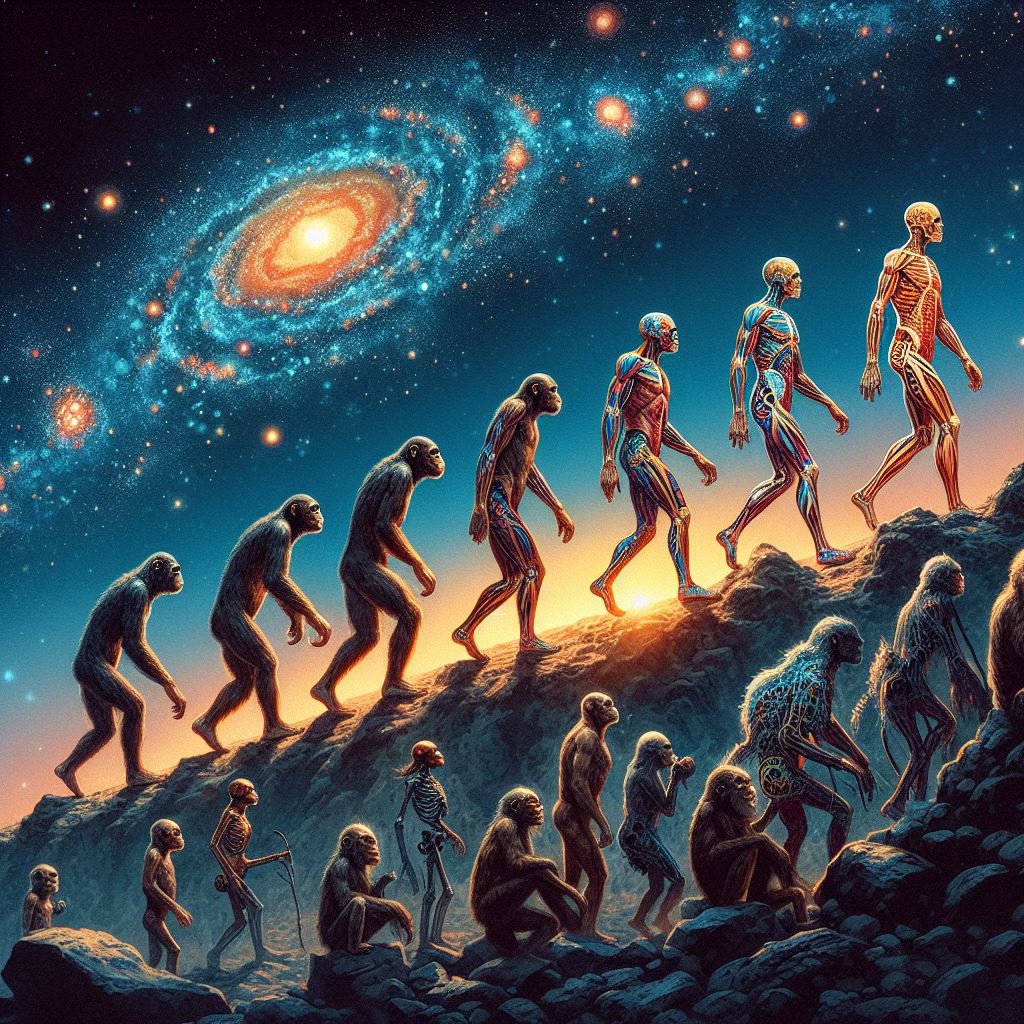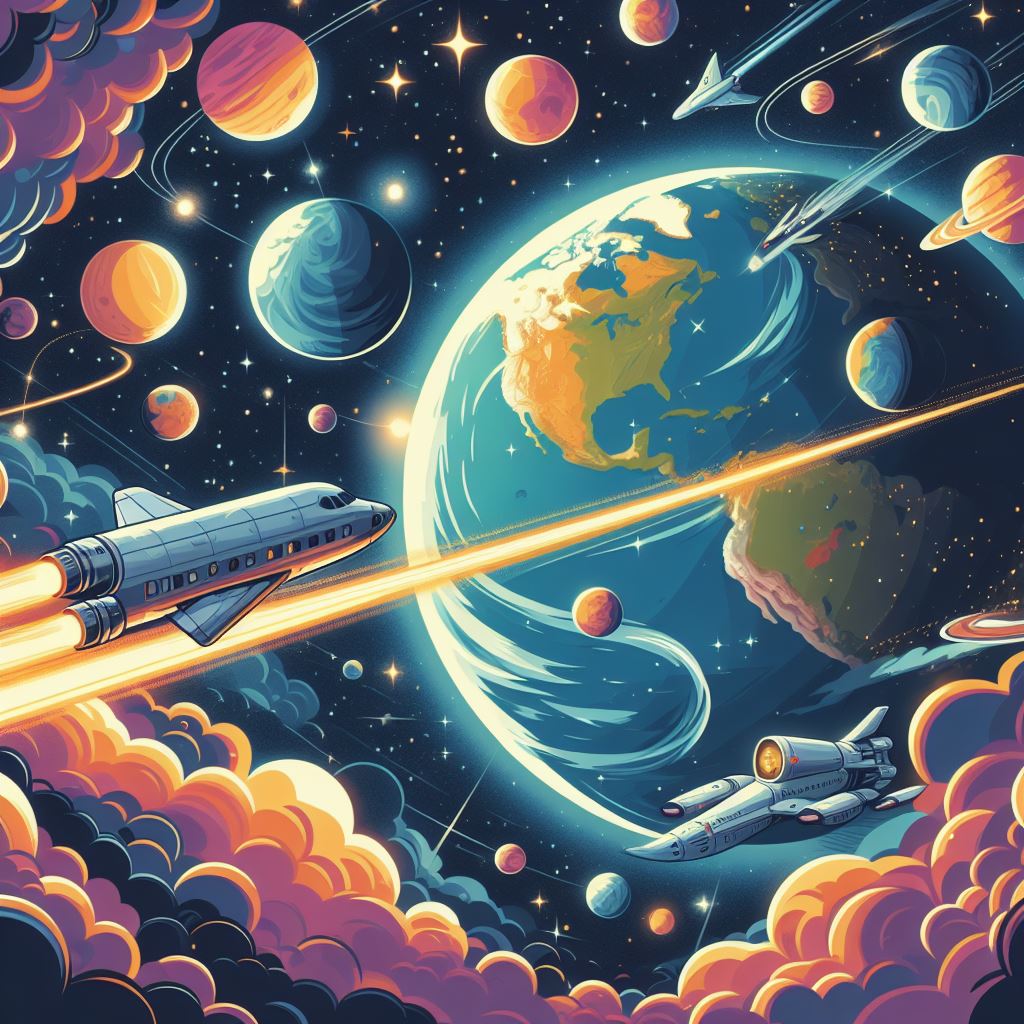As a science writer thinking about the future, I often wonder - can we predict how humans will evolve? Will we be able to guess what men will look like in, say, 10,000 years from now?
As we learn more about evolution, let's explore if it gives us a crystal ball into the distant future.

To begin, evolution
occurs gradually over many generations.
Humans evolved from small creatures over
millions of years. Natural selection, random
mutations, or genetic drift generated small
changes in each generation, which
accumulated over long periods. To anticipate
what humans will look like in 10,000 years,
we must first grasp the key forces of
evolution.
Natural selection is the
primary process considered in evolution. If
certain characteristics help you survive
better or have more babies who live long
enough to reproduce, those characteristics
become more frequent. Giraffes are a classic
example. Long-necked animals could reach
more food higher up in the trees, therefore
the long-neck feature spread.
However, evolution includes some
unpredictability. Mutations are errors in
DNA copying that result in the development
of new features, some of which are
beneficial. We can't predict what mutations
may occur. Plus, genetic drift -
unintentional changes in a population's
genes over time. Even in the absence of
selection factors, gene variations can
become more or less prevalent at random.
Looking back in time provides hints, but
has human development followed a predictable
course up to this point? Yes, in some ways;
no, in others. Over many million years,
we've slowly evolved larger brains. Our
stone tools also become more complicated
over time. Both were most likely influenced
by natural selection to become smarter.
We nearly went extinct more than once in
the last 100,000 years as well. Imagine if
those bottlenecks had played out
differently, that injects an element of
randomness.
So human evolution has
had a bit of unpredictability coming from
our natural habitat mixed with general
trends like bigger brains over long
timescales.
Can we predict future
human evolution any better than how we
understood the process behind our past
evolution?
Again, there are
arguments on both sides. On one hand, modern
medicine and technology have removed many of
the selection pressures that drove our
evolution for millions of years. So in that
sense, human evolution may have slowed or
become less directed in the genetic sense.
But on the other hand, new gene
variants continue to arise through mutation.
If strong selection pressures arise in the
future, evolution could kick back into
higher gear. Those with gene variants better
suited to the new environment would thrive
and pass on their DNA.
This brings
us to the future evolution of human beings
specifically.
- Could we possibly
guess what human will look like 10,000 years
from now?
This tough to say - but let's speculate based on some evolutionary theories: - Brain
size and intelligence may continue
increasing if being smarter remains
advantageous. This trend could apply to both
men and women though.
- If women
continue to preferentially prefer taller,
more masculine males as partners, these
traits may become exaggerated over time.
- Fertility may continue declining in both sexes as narrow pelvises make childbirth harder for women. So less fertile but healthier people may get selected.
If we move to live in space or different worlds, entirely new selective pressures could drive major physical changes difficult to anticipate now. These would likely impact men and women.

Overall, I think human
physical traits will probably stay within a
recognizable range for the next 10,000 years
barring something totally unpredictable like
colonizing Mars. But details like average
height or hormonal levels may shift. And who
knows what could happen to the human brain
and intelligence on longer timescales.
To summarise, human evolution has had
very consistent trends in the past, but also
some huge shocks. The future path is heavily
dependent on whether we continue to remove
selective constraints or face new obstacles
such as space flight.
My guess is that
humans will still look recognisable to us
after 10,000 years.
However, if we take a much longer view to remain scientifically speculative, future humans branching off from today's population may end up appearing as different to us as microbes do! So, while the near-term course appears to be reasonably predictable when considering millions of years, uncertainty reigns supreme.